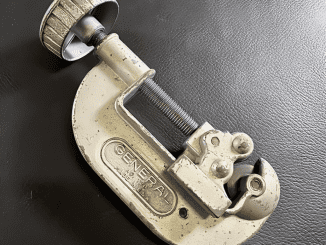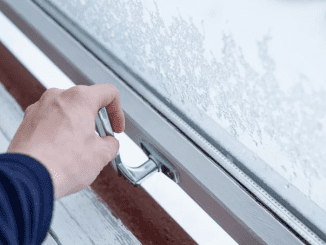If you grew up in a snowy climate during the mid-20th century, you’re likely familiar with the joy of riding down icy hills on a vintage wooden sled. It wasn’t just an ordinary winter toy—it was a symbol of adventure, nostalgia, and tradition. Whether it was a cherished Christmas gift or an essential tool for the season, the vintage wooden sled was a must-have for both children and adults. In this article, let’s take a closer look at this iconic sled’s rich history, its timeless design, and the joy it brought to generations.
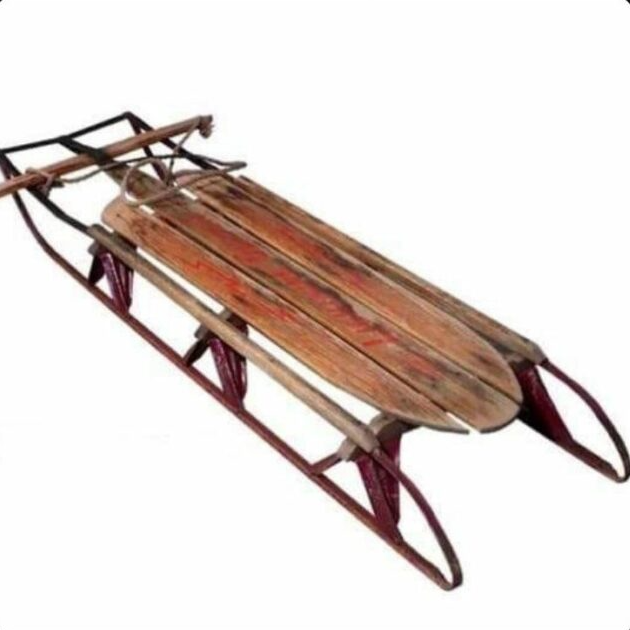
The Origins of the Vintage Wooden Sled
The vintage wooden sled has been a part of winter culture for well over a century. Sledding itself can be traced back to ancient civilizations, but the wooden sled we recognize today began to gain popularity in the late 1800s. With the rise of industrial manufacturing, sleds were mass-produced, making them more affordable and accessible. By the 1920s, sleds became a staple in American households, especially those with children eager to make the most of snowy winters.
One of the most renowned names associated with this winter classic is Flexible Flyer, a company founded in 1889 by Samuel Leeds Allen. Flexible Flyer perfected the design of the wooden sled, creating a sturdy and speedy sled with a distinct look—wooden slats on top and steel runners beneath for smooth, swift rides. This design not only made sledding more thrilling but also established the sled as a durable, timeless treasure.
The Thrill of Sledding: A Winter Tradition
Sledding wasn’t just a simple activity; it was a cherished winter tradition. With a vintage wooden sled in hand, kids of all ages would head to the nearest hill, eager for the thrill of the ride. The excitement began as soon as they reached the top—there was a special kind of magic in taking a running start, hopping onto the sled, and feeling the rush of wind as you sped downhill.
Sledding was more than just fun; it also sparked creativity. Children invented games, challenges, and even competitions—who could go the farthest? Who could steer the best? The vintage wooden sled allowed for different techniques: lying flat for maximum speed or sitting upright for better control. But regardless of the method, each ride ended with the same outcome: a race back up the hill, sled in tow, eager for another turn.
The Durable Design of the Wooden Sled
The design of the vintage wooden sled was simple yet incredibly effective, which is why it remained popular for decades. The sled’s body was made from strong wood, often oak or ash, capable of withstanding the roughest winter play. The steel runners on the bottom reduced friction, making it easier to glide over snow and ice. With a sturdy crossbar for steering, riders could shift their weight or pull the bar to change direction.
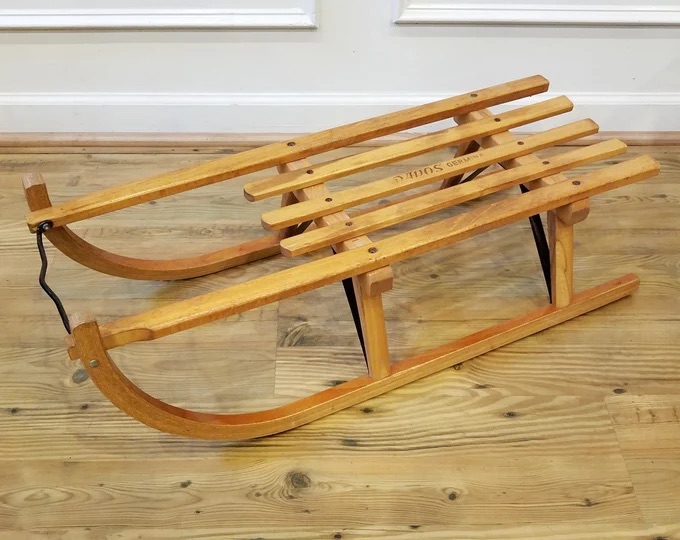
The craftsmanship of this sled speaks to an era when toys were built to last, evoking nostalgia for simpler times
The vintage sled’s versatility also extended beyond fun. In rural areas, these sleds were sometimes used as practical tools, helping transport firewood, supplies, and even farm equipment through snow-covered paths. The combination of strength, functionality, and speed made the wooden sled a trusted winter companion, whether it was used for work or play.
The Impact of Sledding on American Culture
The vintage wooden sled became more than just a toy; it was a significant part of American culture. It was featured in countless winter-themed films, paintings, and stories, symbolizing the innocence and simplicity of childhood. Classic films like “A Christmas Story” included scenes of sledding, solidifying the sled’s place as a staple of the season.
Communities would even host sledding races in local parks or backyards, with children competing to see who could reach the bottom of the hill the fastest. The sled was often decorated with colorful paint or personal touches, making it a prized possession for kids who took pride in their sledding skills.
Interesting Facts About the Vintage Wooden Sled
- Competitive Sledding: Sledding was not just a pastime—it was a sport. Vintage wooden sleds were commonly used in local races, and participants would try to master the art of steering and speed for a better chance of winning.
- Cultural Symbol: The vintage wooden sled featured in many classic holiday films, illustrations, and postcards. It represented the essence of winter fun and the joy of family gatherings.
- Collectible Value: Today, the vintage wooden sled is a sought-after collector’s item. Antique shops and online marketplaces often feature these sleds, with some fetching high prices, especially if they bear the original branding of companies like Flexible Flyer.
- DIY Projects: Many people have taken to restoring old sleds as a nod to the past. The sled’s wooden body and metal runners make it an ideal DIY project for those looking to bring a piece of nostalgia back to life.
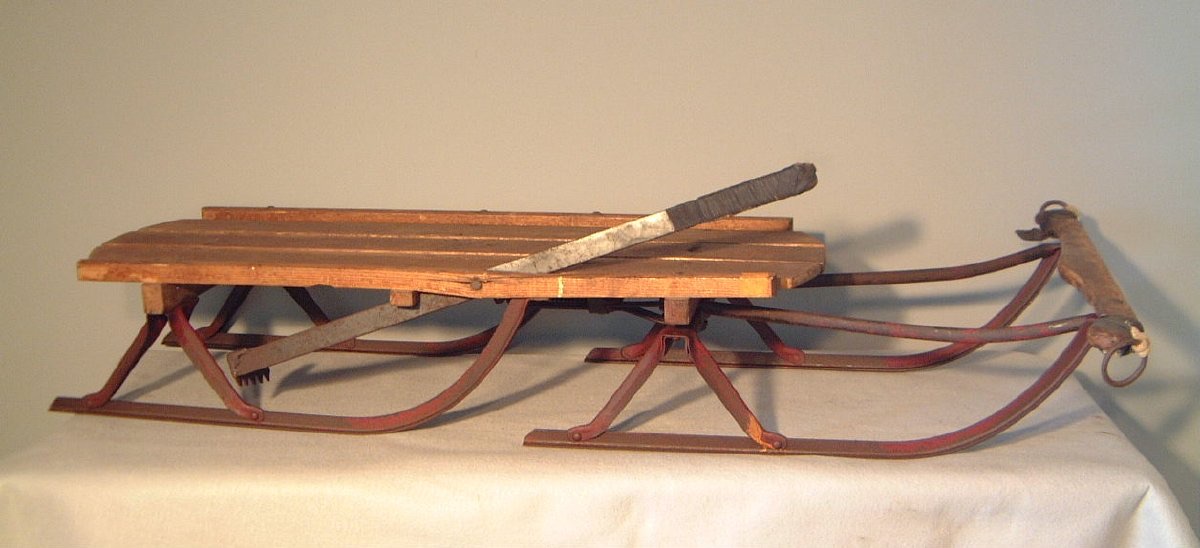
The iconic red metal frame and wooden seat of this sled symbolize a nostalgic reminder of simpler times
The Legacy of the Vintage Wooden Sled
Though modern sleds—made of plastic or inflatable materials—are now more common, the vintage wooden sled holds a special place in many hearts. It’s a symbol of a bygone era, when winters were spent outdoors, bundled up in heavy coats, scarves, and mittens, racing down snowy hills. The creak of the wooden slats, the sound of metal runners on ice, and the feeling of steering down a hill bring back memories of childhood innocence and adventure.
The wooden sled has a lasting legacy not just because of its design, but because of the memories it created. It’s a piece of history that connects families to simpler times, reminding them of the joy of snow days and the thrill of winter play.
Conclusion: The Enduring Charm of a Winter Classic
The vintage wooden sled is more than just a relic of the past—it’s a treasure that represents a time when life was simpler and winters were filled with adventure. From its sturdy design to the joy it brought to generations, this classic sled holds a special place in American culture. It’s a reminder of snowy hills, family gatherings, and the magic of winter days spent outdoors.
While today’s sleds might be faster and more lightweight, they lack the charm and history of the vintage wooden sled. If you ever come across one of these timeless treasures, take a moment to appreciate its legacy. It’s a piece of history that has created countless memories, making it a true winter classic.
